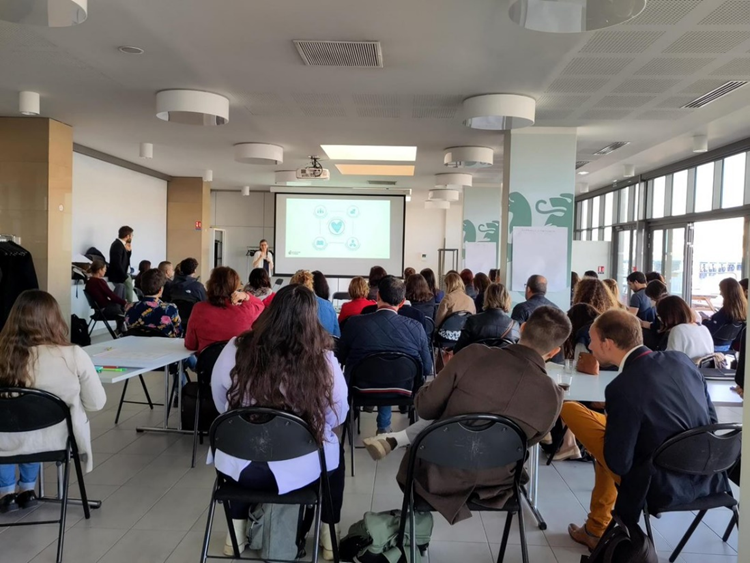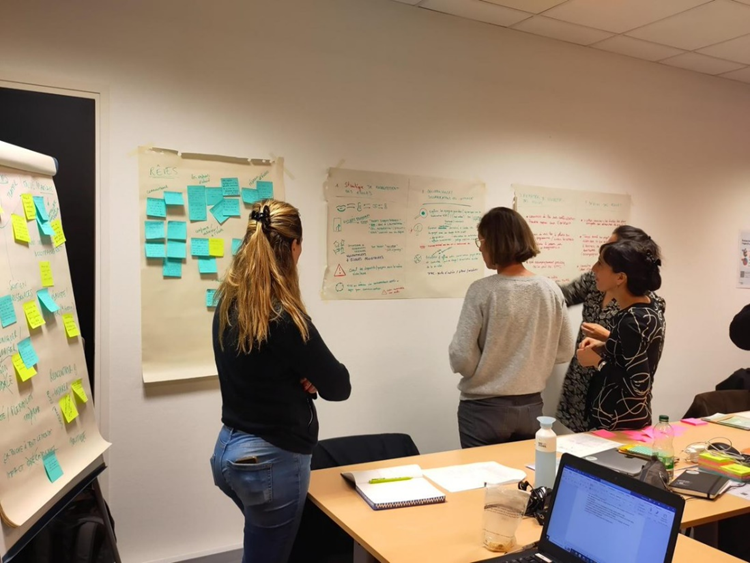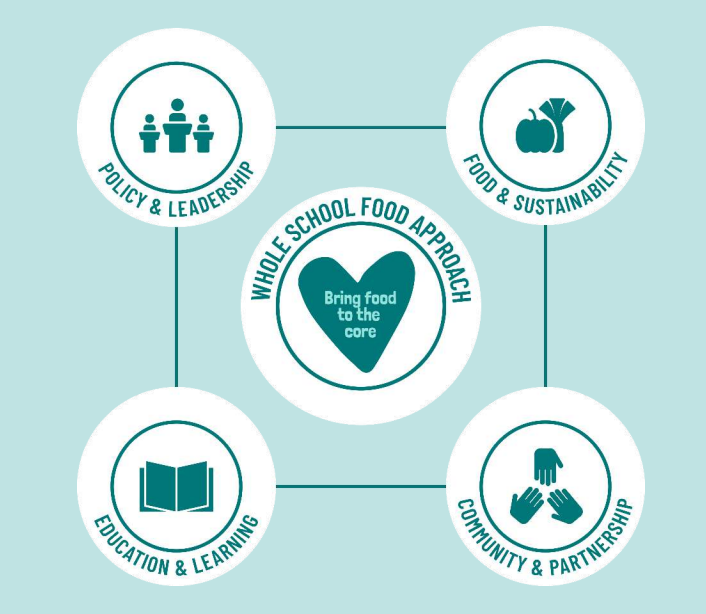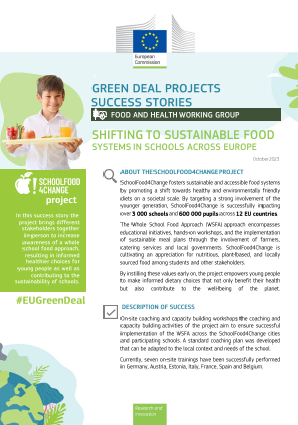About SchoolFood4Change
SchoolFood4Change fosters sustainable and accessible food systems by promoting a shift towards healthy and environmentally friendly diets on a societal scale. By targeting a strong involvement of the younger generation, SchoolFood4Change is successfully impacting over 3 000 schools and 600 000 pupils across 12 EU countries.
The Whole School Food Approach (WSFA) approach encompasses educational initiatives, hands-on workshops, and the implementation of sustainable meal plans through the involvement of farmers, catering services and local governments. SchoolFood4Change is cultivating an appreciation for nutritious, plant-based, and locally sourced food among students and other stakeholders.
By instilling these values early on, the project empowers young people to make informed dietary choices that not only benefit their health but also contribute to the well-being of the planet.
Description of success
On-site coaching and capacity building workshops: the coaching and capacity building activities of the project aim to ensure successful implementation of the WSFA across the SchoolFood4Change cities and participating schools. A standard coaching plan was developed that can be adapted to the local context and needs of the school. Currently, seven on-site trainings have been successfully performed in Germany, Austria, Estonia, Italy, France, Spain and Belgium.
Organisers of the trainings have used this opportunity not only to share and build knowledge, but also to bring a number of relevant stakeholders together to talk about school meals and SchoolFood4Change - more than 70 people participated in the coaching in Lyon, France.
Highlights
- Seven on-site trainings conducted.
- Increased awareness of WFSA actions, activities, and responsibilities from SchoolFood4Change partner cities.
- Fostered a common understanding for the need to work together from different key stakeholders who usually work around the school system without ever meeting, as a result of bringing them together.
- Enabled constructive discussions as a result of the diversity of participating stakeholders.
- Partner cities supported in finalising their WSFA implementation plans through the coaching sessions
Impact
The main outcome of the project is increased awareness of the WSFA actions, activities and responsibilities among key stakeholders. In this way the foundation was set for a renewed future of cooperation and continuous WSFA implementation in the cities’ schools.
Participating schools felt supported and confident in the implementation of their WSFA through the onsite coaching and capacity building sessions.
Furthermore, the on-site training sessions helped to highlight the European dimension of the SchoolFood4Change project and strengthen the network of relevant stakeholders of the school food system.
Lessons
- Bringing different stakeholders together (in-person) can lead to very fruitful exchanges and learnings.
- The diversity of stakeholders allowed for concrete thinking and productive discussions.
- Training and networking can go hand-in-hand.
Other information
Photos from the workshops



The diagram above shows the Whole School Food Approach (WSFA), as promoted by the SchoolFood4Change project. It includes the four key pillars:
- Pillar 1: Policy & Leadership
This pillar is about ensuring the participation of all relevant stakeholders. It also addresses the way a school approaches healthy, sustainable food in its plans, policies, activities, values and teaching.
- Pillar 2: Food & Sustainability
This pillar focuses on creating safe, appropriate spaces in schools where all children, regardless of their background, can enjoy a healthy lunch in peace, either offered by the school or brought from home. The food and drinks on offer at schools should be tasty, healthy, balanced and (insofar as possible) based on sustainable criteria that aim for a positive environmental and social impact.
- Pillar 3: Education & Learning
Education about food and food systems touches on all three dimensions of sustainable development: environmental, social and economic. By sharing not just the theory with children, but also teaching them how to cook & grow, pupils gain the skills and knowledge that will enable them to make well-thought-through decisions that directly affect their own health and that of the planet.
- Pillar 4: Community & Partnership
This pillar focuses on cooperation with a wide range of actors in the school’s environment: caregivers, local authorities, food shops, snack bars, farms, associations, retirement homes, neighborhood committees, etc. to reach the biggest impact.

